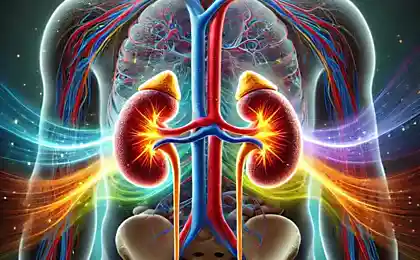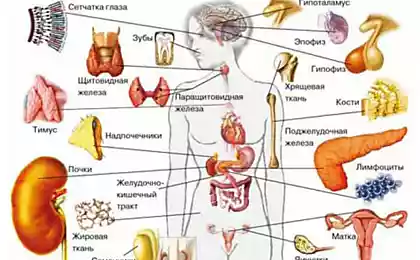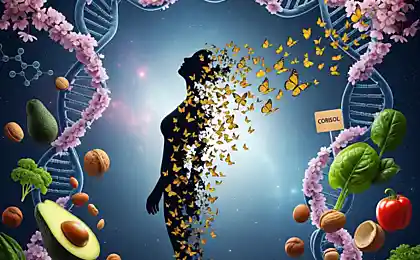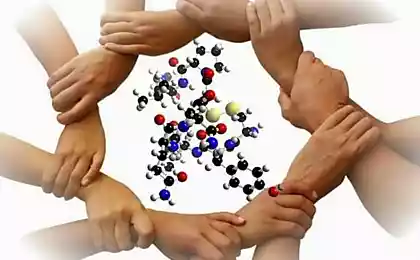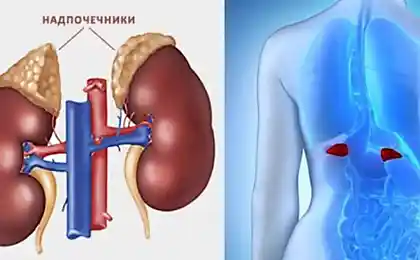452
Chemistry of communication with a child

Our body produces dozens of different hormones. Some of them are responsible for our emotional state.
Researchers distinguish at least two hormones that influence social behavior is a stress hormone cortisol and the hormone of “love and affection” oxytocin.
What do you think, what hormone your child stands out more during conversations with you, cortisol or oxytocin?
When you make observations, discuss his work and himself?
When you hug or attentively listening to?
Why does it even matter? Let's face it.
CORTISOL – the stress hormone. Cortisol mobilizes energy resources of the body for efficient performance and protection in danger situation.
However, despite the mobilization of the benefits is its “charge”. Cortisol temporarily cuts off communication with the prefrontal area of the cerebral cortex of the brain and triggers protective behaviour. The person becomes more sensitive, irritable, consciousness is fixed on the stimuli that the brain evaluates as a threat. Unpleasant stimuli are deeply imprinted in our memory.
The action of cortisol prolonged. That is why negative conversations haunt us much longer. Resentment becomes part of our thoughts later, blocking recently heard the praise.
Prolonged state of stress leads to excessive production of cortisol, which in turn leads to exhaustion and depression.
OXYTOCIN “the hormone of love and attachment.” A feeling of satisfaction, reduction in anxiety, a sense of calm and trust, reduces fear, increases ability to communicate. While aktiviziruyutsya connections in the frontal lobes of the cerebral cortex, which are responsible for human consciousness, for the complex integrative processes, for empathy, for social behavior.
But the period of metabolism of oxytocin are much shorter so the effect is not as strong and not as long lasting. Plus, oxytocin is a “shy” hormone, its production is terminated at the slightest perceived by the brain to threat and stress.
Any of our communication triggers the production of a hormone, or rather a “cocktail” of hormones (they are, of course, more than two), their “chemistry”.
Those forms of communication, which increases the level of oxytocin, raise the "intellectual level of communication" (communication – IQ C-IQ), that is, a person aktiviziruyutsya the ability to show empathy, creativity, willingness to work together and cooperate. In contrast, those behaviors that contribute to the release of cortisol, lower levels of C-IQ.
Among the types of behavior that contribute to the production of oxytocin, a companion, are the following:
- a genuine concern;
- affection and hugs (from people, to which you are attached);
- support;
- interest and attention to the words, emotions and actions of the interlocutor;
- encourage discussion and questioning;
- setting up for success, obrazovanie pictures of success;
- confidential conversation.
- separation from the person to whom you are attached, physical and emotional;
- intimidation;
- charges;
- punishment – first of all, emotional coldness and inaccessibility;
- the attribution of negative characteristics (lazy, hack);
- underlining the differences between himself and the interlocutor;
- ignoring;
- distrust of the intentions and actions of the interlocutor;
- the desire to convince others of the correctness, imposing their views;
- a lack of understanding of what the interlocutor says;
- feigned hearing.
The adult can help the child relieve the burdens of her “cortisolemia” emotions, providing an opportunity in a relaxed and safe environment to cry, and move on to the production of oxytocin.
Of course, all this doesn't mean we shouldn't criticize the child or to stop to require him to perform any duties or enforce the rules. But it should be done so that the child does not feel humiliated or rejected. It is important that the ratio of hormones was in favor of oxytocin, because oxytocin – in fact – allows the child to raise your C-IQ, “to humanize” and to become more Mature and capable of kind acts.published
Source: alpha-parenting.ru









